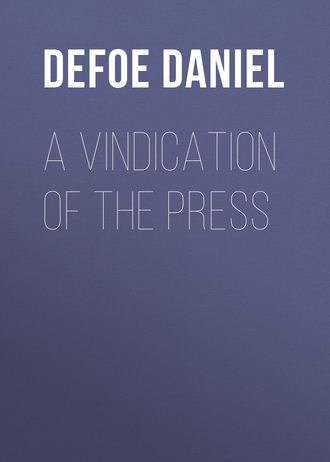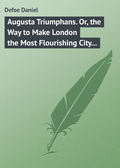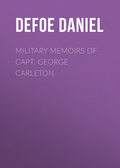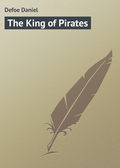
Даниэль Дефо
A Vindication of the Press
The Business of these Gentlemen is to set the ignorant Part of Mankind right, In correcting the Errors of pretending Authors, and exposing of Impositions, whereby who has Learning and Merit, and who has not, may be so apparent, that the World may not misplace their Favour; but unless they do it with more Impartiality, Temper and Candour than of late, they may, with equal prospect of Success, endeavour to turn the current of the Thames, as to pervert the Humour of this good-natur'd Town.
I presume to present them with these two Verses:
The learned Criticks learn not to be Civil,
In Spite and Malice personate the Devil.
Having now dispatch'd the two first Subjects of my Essay (viz.) The Usefulness of Writing, and Criticism, I come to my last Head, the Qualification of Authors.
I am not of the Opinion of a great many Persons in the World, that a Poet is entirely born such, and that Poetry is a particular Gift of Heaven, not but I confess there is a great deal in natural Genius, which I shall mention hereafter:
It is consistent with my Reason, that any Man having a share of Learning, and acquainted with the Methods of Writing, may by an assiduous Application, not only write good Poetry, but make a tollerable Figure in any sort of Writings whatsoever; and herein I could give numerous Instances of Authors who have written all manner of Ways with success. Neither can I acquiesce in the common Notion, that the Person who begins most early in Poetry always arrives to the greatest Perfection; for, in my Opinion, it is a Matter of no great difficulty, for a Person of any Age, before his Vivacity is too much abated, and Fire exhausted, to commence a Poet; the great Mr. Dryden not beginning to Write 'till he was above the Age of 30; and I doubt not but a great many Persons have lost themselves for want of putting their Genius's to the Trial, and making particular Writings their particular Studies.
Their is no Practice more frequent than for an Author to misapply his Genius; and there is nothing more common than for a Man, after numerous Trials in almost all sorts of Authorship, to make that his favourite Writing which he is least capable of performing; and too frequently Authors use their Genius's as Parents do their Children, place them to such Businesses as make the most considerable Figure in the World, without consulting their Qualifications.
There are many other Faults equal to these, as where Authors, through overmuch Timerity, or too great Opinion of their own Performances, permit their Writings to pass with egregious Errors; and I take it to be equally pernicious for a Man to be too diffident of his own Performances, as it is to be presuming: There are likewise some Gentlemen, who (by a lazy Disposition, or through over much Haste, an impatience in dispatch to gain an early Reputation) commit Blunders almost to their immediate Ruin; but many of these Errors are commonly excus'd in an Author by a condescending Printer, who is oblig'd to take the Errata upon himself.
In Prose a slight Examination of a Performance may suffice, but in Poetry it cannot be too often repeated; and in this way of Writing, haste is attended with a fatal Consequence. To compose your Lines in perfect Harmony, of easy flowing Numbers, fine Flights and Similies, and at the same Time retain a strong Sense, which make Poetry substantially Beautiful, is a Work of Time, and requires the most sedate Perusals: And though some Persons think, giving Poetry the Character of easy Lines to be a Disgrace, it is rightly considered the greatest Reputation and Honour they can do it; the utmost Difficulty attending this easy Writing, and there are very few Persons that can ever attain it.
But to leave these general Observations, I proceed to my Point in Hand, the Qualification of Authors; Though I shall first take Notice, that the Business of every Author is to please and inform his Readers; but how difficult it is to please, through the prevalence of Parties, Envy and Prejudice needs no Illustration, and some Persons in the World are so very perverse and obstinate, that they will not be inform'd by a Person they entertain no good Opinion of. For writing Prose a Man ought to have a tollerable Foundation of Learning, at least to be Master of the Latin Tongue, to be a good Historian, and to have a perfect Knowledge of the World; and besides these Qualifications, in Poetry as I have before observ'd, a Writer should be Master of the most refin'd and beautiful Language, surprizing Turns, fine adapted Similes, a sublimity of Thought, and to be a Person of universal Learning: Though I have often observ'd, both in Prose and Verse, that some Persons of strong Genius, well acquainted with the World, and but of little Learning, have made a better Figure in some kinds of Writings, than Persons of the most consummate Literature, not bless'd with natural Genius, and a Knowledge of Mankind.
The preference of Genius to Learning, is sufficiently Demonstrated in the Writings of the Author of the True born English Man; (a Poem that has Sold beyond the best Performance of any Ancient or Modern Poet of the greatest Excellency, and perhaps beyond any Poetry ever Printed in the English Language) This Author is Characteriz'd as a Person of little Learning, but of prodigious Natural Parts; and the immortal Shakespear had but a small share of Literature: It is likewise worthy Observation, that some of our most entertaining Comedies, Novels and Romances have been Written by the fair Sex, who cannot be suppos'd to have Learning in any Degree equal to Gentlemen of a University Education. And in North Britain where Literature shines amongst the Persons of middle Station, an Ounce of Natural Parts, (speaking in a common way of Comparison) is Esteem'd of greater Value, than a Pound of Learning.
A Person of Learning without Genius and Knowledge of the World, is like an Architect's Assistant, whose only Business is to Draw the Draught or Model of a Pile of Building; he's at a loss in the Materials necessary for compleating the Structure, tho' he can Judge of its Beauty when Perfected; and may be compared to a Man that has the theory in any Art or Science, but wants the Practice.
And a meer Scholar is the most unacceptable Companion upon Earth: He is Rude in his Manners, Unpolish'd in his Literature, and generally Ill-Natur'd to the last Degree; he's Company for a very few Persons, and Pleasing to None; his Pride exalts him in Self-Opinion beyond all Mankind: And some of the sucking Tribe of Levi, think the Gown and Cassock alone, Merit a Respect due to the greatest Personages, and that the broad Hat with the Rose should be Ador'd, tho' it covers a thick and brainless Skull.
But these are a few only; there are great Numbers of the Clergy who deserve the utmost Respect, and are justly paid more than they desire; and no Person can have a greater Regard for that sacred Body than my self, as I was not only intended for a Clergyman, but have several Relations now in being of that venerable Order; Tho' I am oblig'd to take Notice, that the Authors of the Gown in general, treat the World with greater Insolence and Incharity, than any Lay-Persons whatsoever.
There's nothing more frequent, than to find the Writings of many of our Modern Divines, not only Stiff and Harsh, but full of Rancour, and to find an easy Propensity and Complaisance in the Writings of the Laity; a Gentleman without the Gown commonly Writes with a genteel Respect to the World, abundance of good Temper and a condescension Endearing; when a brawny Priest, shall shew a great deal of Ill-nature, give indecent Reflections, and affrontive Language, and oftentimes be Dogmatical in all his Performances.
Whether this be owing more to Pride, than a want of an Easy, Free, and polite Conversation, I do not take upon me to Determine; but I believe it must be generally Imputed to the Former, as it cannot be suppos'd, that either of the Universities, are at any time without a polite Converse; tho' I take leave to observe, that there is a great deal of difference between a finish'd Oxonian, and a sprightly Senator.
This is Demonstrated in the Speeches from Time to Time, made in the Senate and the Synod; the Stile and Composure of the one, is no way to be compar'd to the other, tho' the Sense be equally strong; there's an Elegancy and Beauty of Expression in the Former, not to be met with in the Latter, Oratory no where to be exceeded, and an Affluence of Words not to be met with in any other Speeches whatsoever; and I believe it must be generally allow'd that there is a very great difference in the common Conversation, (particularly in point of Manners) of the Members of those August Assemblies.
A good Conversation is the greatest Advantage an Author can possibly Enjoy, by a variety of Converse, a Man is furnish'd with a perpetual Variety of Hints, and may acquire a greater Knowledge on some Subjects in the space of a few Minutes, than he can attain by Study, in a Succession of Weeks, (tho' I must allow Study to be the only Foundation for Writing) 'twas owing to a good Conversation, that those Entertaining Papers the Tatlers were publish'd by Sir Richard Steel, the Examiner carried on by Mr. Oldsworth; and 'tis impossible a perfect good Comedy can be written by any Person, without a constant Resort to the best Conversation, whereby alone a Man will be Master of the best Thoughts.
In short, Conversation is the Aliment of the Genius, the Life of all airy Performances, as Learning is the Soul; the various Humours of Mankind, upon all Occasions, afford the most agreeable Subjects for all sorts of Writings, and I look upon any Performance, tho' done by a Person celebrated for Writing, without the use of Conversation, in some measure incompleat.
If an Author be enclin'd to write for Reformation of Manners, let him repair to St. Pauls or Westminster-Abbey, and observe the indecent Behaviour of multitudes of Persons, who make those Sacred Places Assignations of Vice; if you are enclin'd to lash the Follies and Vanities of the fair Sex, retire to the Tea Table and the Theatre; if your Business be to compose a Sermon, or you are engag'd in Theological Studies, resort to Child's Coffee-House in St. Paul's Church-Yard; if you are desirous to depaint the Cheat and the Trickster, I recommend ye to the Royal-Exchange and the Court End of the Town; and if you would write a Poem in imitation of Rochester, you need only go to the Hundreds of Drury, and you'll be sufficiently furnish'd with laudable Themes.







